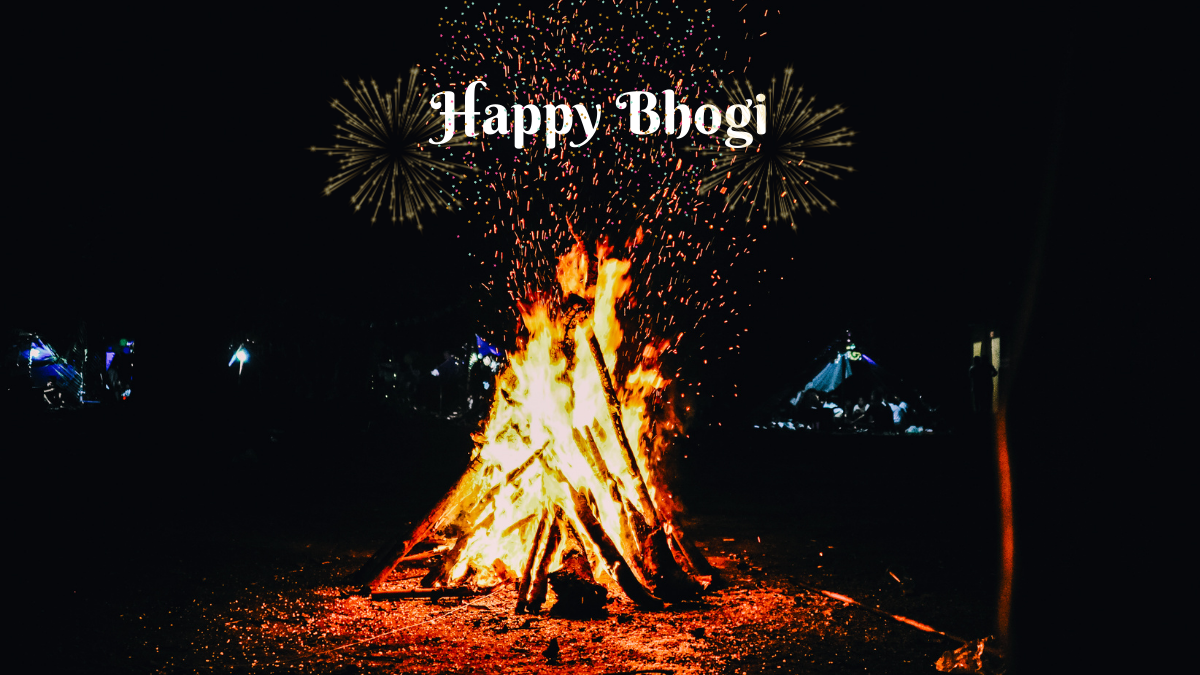Bhogi, celebrated a day before Makar Sankranti, marks the beginning of the harvest season and holds immense cultural and spiritual importance across India. This festival signifies the end of the winter solstice and the arrival of longer days, filling hearts with enthusiasm and joy.
Bhogi 2025: Date and Time
Bhogi is celebrated on the last day of the Tamil month of Margazhi, which falls on January 13. It showcases the rich diversity of Indian traditions as it is observed under different names in various states.
This year, Bhogi is being observed on Monday, January 13 and the Bhogi Sankranti moment is at 09:03 AM on Tuesday, January 14, 2025.
Bhogi 2025: Rituals and Celebration
In Maharashtra, Bhogi is dedicated to Lord Indra, the God of Rain, thanking him for his blessings of a good harvest. Farmers pray to their ploughs and farming equipment, adorning them with kumkum and sandalwood paste as a gesture of respect. They offer prayers to the Sun God and Mother Earth before harvesting their first crop of the season.
A key aspect of Bhogi is the symbolic act of discarding the old to make way for the new. Families light bonfires to burn unused or unwanted items, representing the elimination of negativity from their lives. Homes are cleaned, whitewashed, and decorated with marigold flowers, mango leaves, and beautiful rangolis (kolams) made with fresh rice flour paste.
Bhogi is also a time for family reunions and joyful celebrations. Children are showered with blessings through the ritual of Bhogi Pallu in Telugu households, where a mixture of fruits, coins, and flowers is sprinkled over them to ward off the evil eye. Delicious traditional dishes like Ariselu are prepared, and kids take their first symbolic steps on these sweets, marking milestones in their growth.
Bhogi celebrations also feature community activities like kite flying, rangoli competitions, and rural sports, adding vibrancy to the festival. As Bhogi sets the stage for Makar Sankranti, it reminds us to embrace positivity, cherish traditions, and welcome new beginnings with open hearts.
3 key rituals of Bhogi Panduga
Bhogi Mantalu (Bonfire)
Before sunrise, households or communities light a bonfire using cow dung cakes, ghee, and wood from sacred trees like Banyan and Neem. The smoke from the fire purifies the air, destroys germs, and detoxifies the body by cleansing the nerves. Scientifically, the heat raises body temperature and promotes health benefits.
Bhogi Muggulu (Rangoli)
Muggulu are intricate floor designs made with rice flour. They are believed to ward off evil forces and attract positive energy. The star-shaped patterns and dots symbolise the protection and transformation of negative thoughts into positive ones, creating a harmonious and welcoming atmosphere.
Bhogi Pallu (Fruit Ritual)
Small children are showered with fruits like jujube, gooseberries, sugarcane pieces, and coins. This ritual is thought to protect them from negativity, bring good fortune, and invoke blessings from divine powers, especially Śrī Lakshmi Narayana, whose favourite fruit is jujube.
Bhogi 2025: Significance
The festival’s significance lies in its focus on renewal, gratitude, and prosperity. Farmers express their gratitude to Lord Indra, believing his blessings bring wealth and a fruitful harvest. Bhogi is celebrated as Bhogi Pandigai in southern India, Lohri in Punjab, and Maghi Bihu or Bhogali Bihu in Assam. Despite the regional variations, the underlying spirit of thanksgiving and joy remains consistent.
